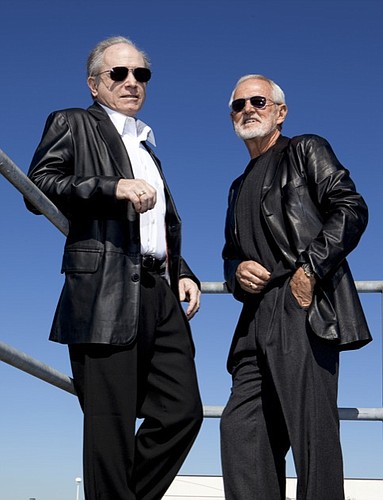- November 26, 2024
-
-
Loading

Loading

Imagine owning a universal remote that controls every electronic appliance in your home. For many, it may sound like a luxury.
But for the founders of St. Petersburg-based Altorr it's personal, necessary and urgent.
Disabled and elderly persons often rely on caregivers to help them in their day-to-day lives. A universal remote could help reduce that reliance, and may even allow some to resume an independent lifestyle.
The potential impact is what's driving small technology start-up Altorr to perfect a device that accomplishes just that.
They're calling it the Victory system: one interface to communicate with any electronic appliance.
The role of lead innovator has been filled by Altorr's chief technology officer, Brad Clough. A veteran software engineer, Clough now finds himself relying on all his business experiences from the past 25 years. Together with Altorr chief executive officer Tim Barber, the two are motivated by one goal: in Clough's words, “To enable the disabled.”
Their mission has been inspired by real world experiences seen by both men. A close friend of Clough's became a quadriplegic after a neck-breaking fall, and Barber's brother lost the use of a leg and hip while serving in the military.
Their closeness to people that could benefit from this technology help them understand the need for innovation and creative thinking, and inspires them to continually think about the next new idea.
But while that motivation has helped the company identify potential markets, it has created a potential issue with which many businesses struggle.
Often, creative minds have no problem coming up with a long list of possible concepts, but find difficulty deciding which new ideas to enact. An ever-increasing to-do list could cripple a CEO like mounting credit card debt; with only so much time in a day, making only minimum payments will keep the idea list's principal from ever being paid off.
Altorr's efforts to increase their business focus have been helped by their partnership with STAR TEC, the St. Petersburg-based business incubator that helps young technology companies get going. Indeed, when asked what he'd change, Barber said he'd have partnered with STAR TEC sooner.
They've formulated a new strategy for shortening their idea list: generate impactful criteria, and apply them.
To start with, Clough says the company had to identify business goals to use with its mission. To that end, Clough says, “Criteria number one, two and three are cash flow, cash flow, and cash flow.”
The importance of liquidity helped motivate the questions Clough and Barber asked themselves to decide which projects to pursue. In order, they considered a potential project's marketability; then the degree to which it aligned with their mission; and finally, how well the project fit their expertise.
After considering those questions, Clough says their priorities became clearer. “Let's do what we're supposed to be doing,” he said. Concepts like a product to help shield aircraft in flight were nixed from the idea list, and the focus returned to Altorr's further-along ideas.
Indeed, the company appears to have made significant progress on a handful of fronts, most notably their remote control system. And that progress has traction — a third partner in the company, Michael Smith, works as a patent attorney, and maintains Altorr's intellectual property portfolio. (When he's not working for Altorr, Smith has just two other clients: GE and IBM.)
Of course, continuing to manage a robust IP portfolio could quickly become expensive. In that sense, Altorr is on the clock.
But Barber and Clough remain as confident now as they were at the beginning. Barber says he's had “zero doubt” about Altorr's potential since June 2008, when the company began doing business.
— Alex Walsh